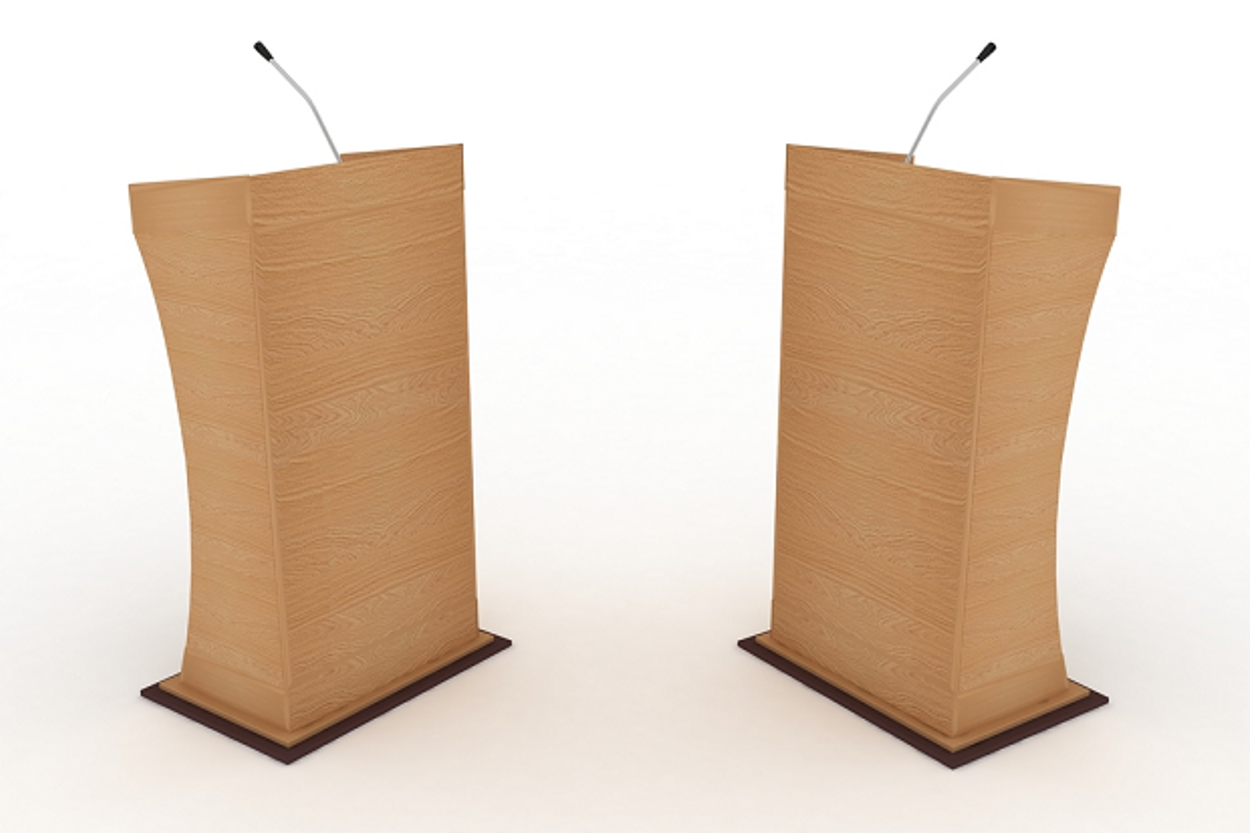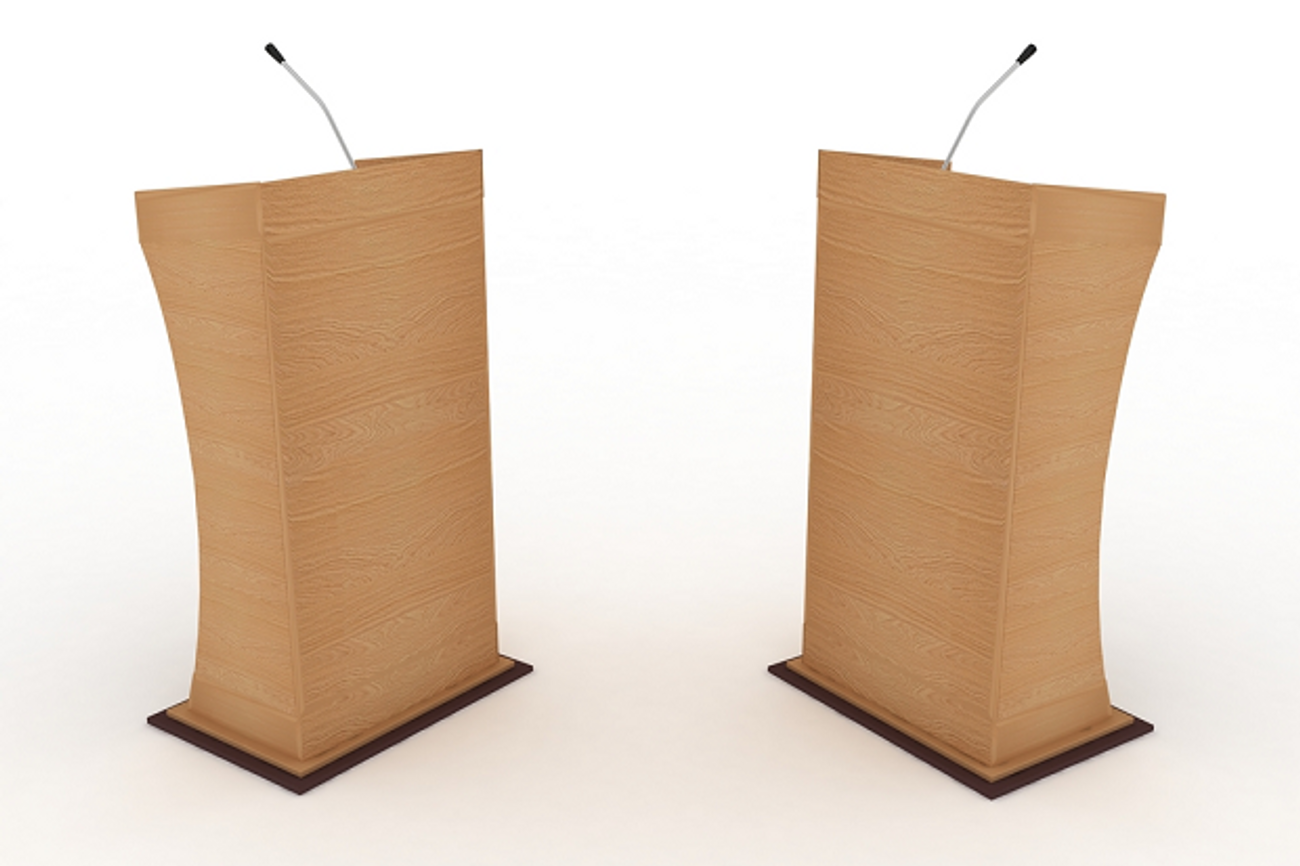Why Talk About Israel With People Who Want It To Disappear?
Not all viewpoints are reconcilable–and that’s OK




To hear some in the press, including the Jewish press, tell it, a crest of intolerance is washing over the American Jewish community, with museums cancelling talks by critics of Israel, high schools censoring appearances by Palestinian intellectuals, and Hillel warding off any initiative that deviates from the Israeli government’s talking points.
Stop it.
What we’re seeing isn’t the closing of the American Jewish mind, as some bloggers–who’d probably never read Allan Bloom’s book and would shudder at its ideas if they did had–have quipped. What we’re seeing is a rare and welcome surge of clear thinking, a much needed burst of intellectual honesty that argues the painfully obvious point that debate ought to be predicated on shared objectives and that the bouquet of values our communal institutions are charged with upholding has more flowers in it than the shrinking violet of pluralism.
Let’s, then, abandon the silly idea that anyone is being muzzled or muted: the men and women in the heart of this recent string of controversies—Rashid Khalidi, John Judis, Judith Butler—are all prominent thinkers and writers whose pens and podiums are firmly planted in our finest universities and our most vaunted publications. Their voices are heard, as they ought to be. The question is whether they ought to be heard in a specifically Jewish context. And because disinviting people is both heavy-handed and inelegant—not to mention a sign of fundamental insecurity—we need to answer this pressing question now, proudly and unequivocally.
In the cases of Butler and the Open Hillel initiative, the answer is simple. Judith Butler and the organizations the Open Hillel movement seeks to engage in dialogue are both supporters of BDS. And BDS is a movement whose stated goal is to end what it perceives as the Zionist colonialist regime and replace it with a single state. Even if we assume that Jews would be welcome there—an assumption that a glimpse at virtually every other Arab nation immediately contradicts—the fact remains that BDS sees its goal as not only ending the occupation, meaning Israeli presence in territories it obtained during the 1967 war, but the Occupation, meaning all of the sovereign Jewish presence in Palestine as such. But don’t take my word for it; here’s Omar Barghouti, BDS’s founding father, saying just that.
And so, if you support Israel’s right to exist as a Jewish state, which most American Jews enthusiastically do, you’ve nothing to say to anyone in the BDS camp. And if you’re a Jewish student association, a museum, or any other Jewish institution, you’re right to tell the BDSers that they’re perfectly entitled to hold their rallies, write their op-eds, and convene their meetings, but not here, not with us.
This is not a measure of punishment. It’s an act of common sense. Perhaps the greatest American theorist of civil discourse, John Dewey, should serve as our guide here; in his most famous book, The Public and Its Problems, Dewey argued for a robust public exchange of ideas, but on two conditions: that we should be educated about the facts, and that we should share common concerns, without which any debate is inherently futile. Anyone supporting Israel’s right to exist, then, has nothing to say to anyone supporting the opposite.
And if you consider Israel’s right to exist a cherished—even sacred—value, you are right to disassociate from people, like Butler, who oppose it, even if the topic of their lecture has nothing to do with Israel (Butler was invited to the Jewish Museum to talk about Kafka).
The same holds for Ramaz. While Rashid Khalidi is, as far as I know, not a supporter of BDS and has written complexly and eloquently about the Israeli-Palestinian conflict, a Zionist, Orthodox high school has every right in the world to instill in its students the values it deems paramount. To argue that only an openness to all points of view is acceptable, to claim that unless we invite our fiercest critics into our house and let them thunder we’re somehow abdicating our responsibilities as mindful and moral human beings is to adhere to the most flightless form of relativism, the kind that believes in nothing save for the fact that all values are equal, which, of course, makes all values meaningless.
In recent weeks, the Jewish community has made a bold step to uphold its values and define what it was that it held most dear. Naturally, some in the Jewish community will find such judgments upsetting, and might even disengage from its institutions as a result. That’s fine. What we need is not unity—a troubling word that suggests we should all overcome our differences and hug each other—but honesty. When we can, let us debate. When we can’t, let us happily admit our irreconcilable differences, and make our choices accordingly. There’s no greater sign of strength than that.
Liel Leibovitz is editor-at-large for Tablet Magazine and a host of its weekly culture podcast Unorthodox and daily Talmud podcast Take One. He is the editor of Zionism: The Tablet Guide.